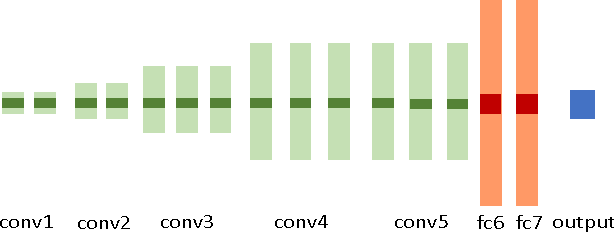Fully-adaptive Feature Sharing in Multi-Task Networks with Applications in Person Attribute Classification
Paper and Code
Nov 16, 2016



Multi-task learning aims to improve generalization performance of multiple prediction tasks by appropriately sharing relevant information across them. In the context of deep neural networks, this idea is often realized by hand-designed network architectures with layers that are shared across tasks and branches that encode task-specific features. However, the space of possible multi-task deep architectures is combinatorially large and often the final architecture is arrived at by manual exploration of this space subject to designer's bias, which can be both error-prone and tedious. In this work, we propose a principled approach for designing compact multi-task deep learning architectures. Our approach starts with a thin network and dynamically widens it in a greedy manner during training using a novel criterion that promotes grouping of similar tasks together. Our Extensive evaluation on person attributes classification tasks involving facial and clothing attributes suggests that the models produced by the proposed method are fast, compact and can closely match or exceed the state-of-the-art accuracy from strong baselines by much more expensive models.
 Add to Chrome
Add to Chrome Add to Firefox
Add to Firefox Add to Edge
Add to Edge